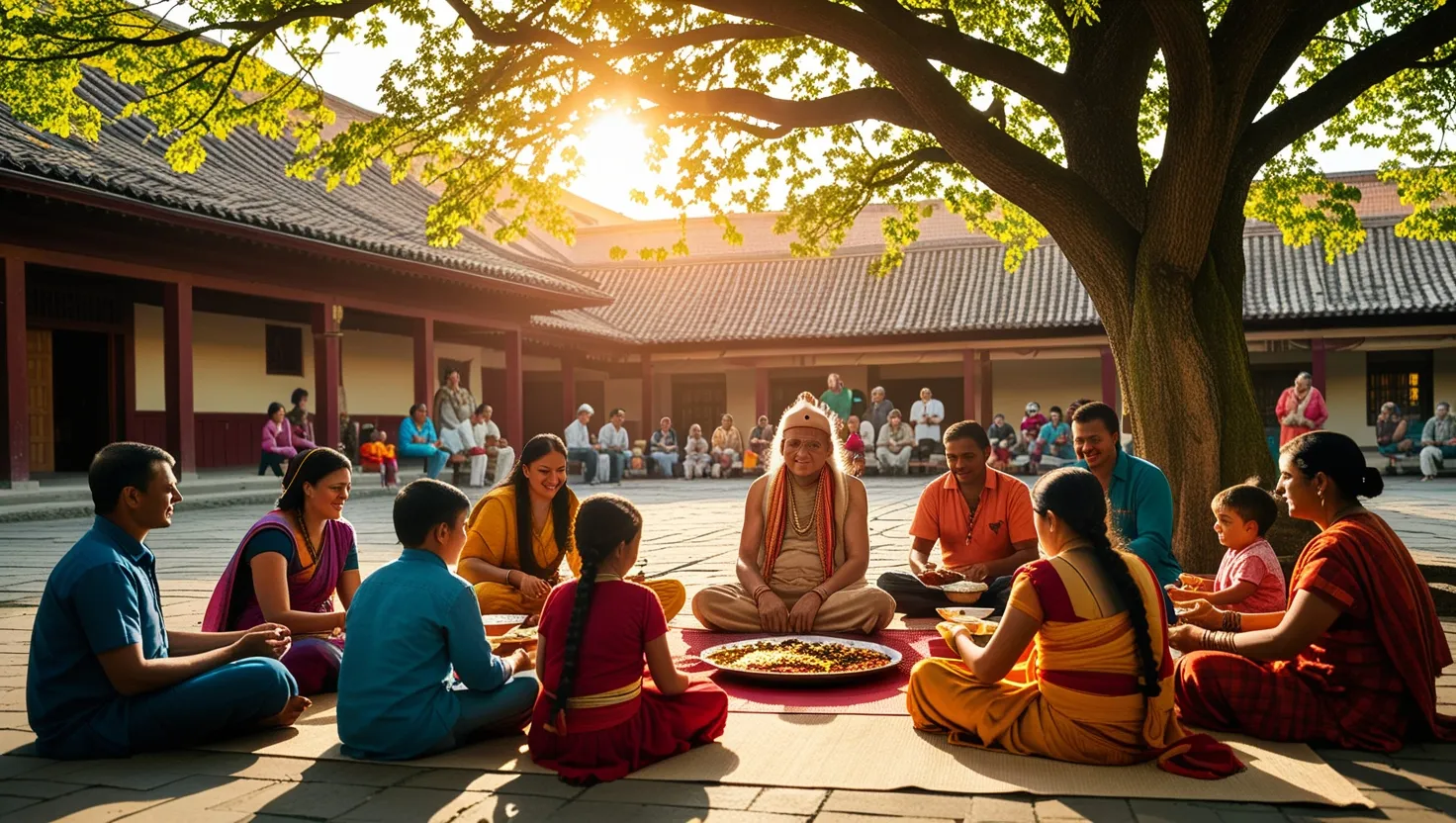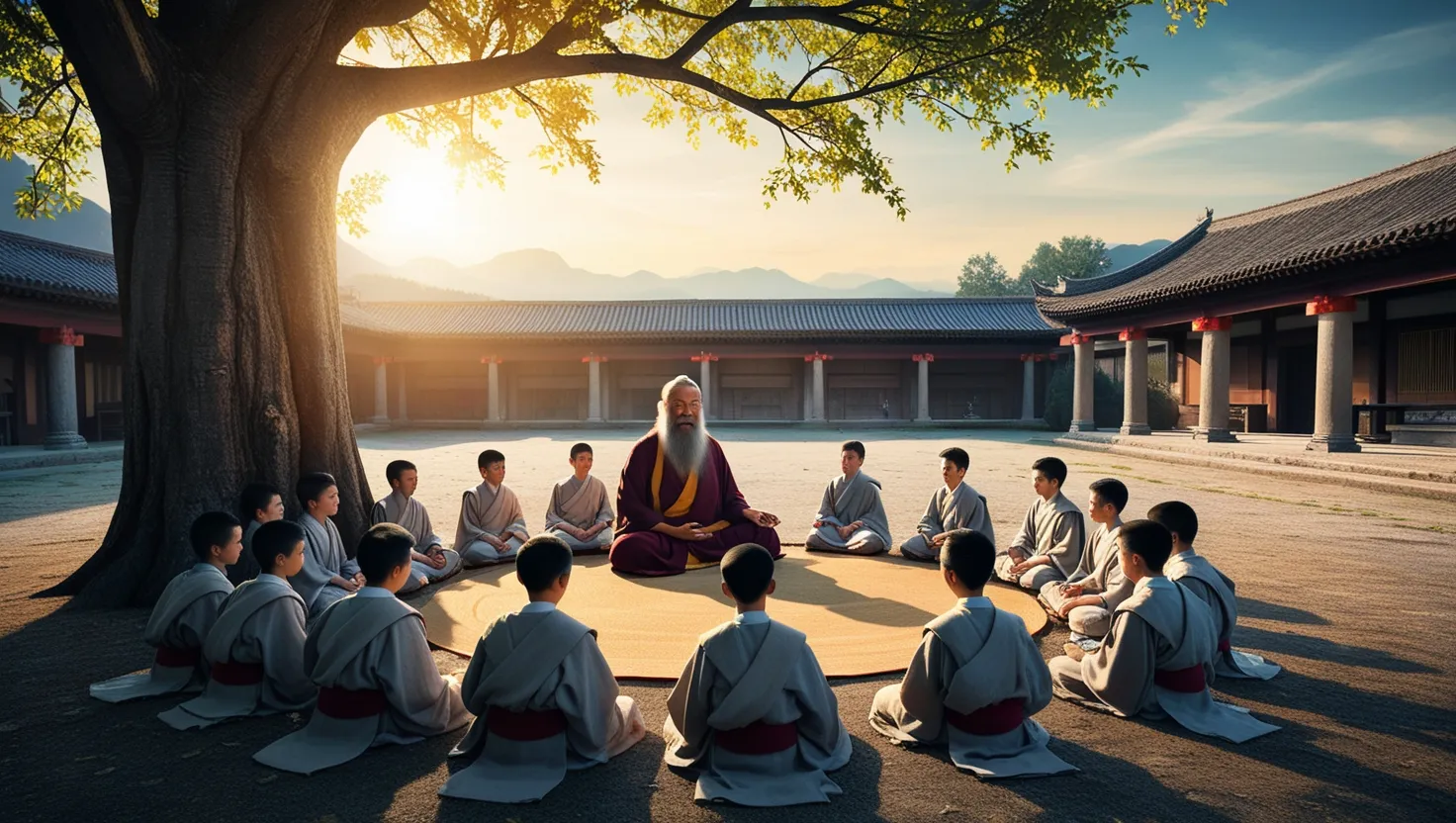What does it really mean to be mentally steady and emotionally strong—not just on the sunny, good days, but through life’s storms? When faced with chaos or loss, I turn instinctively toward ancient Vedic wisdom. Despite its age, this reservoir of thought offers remarkably practical tools for handling inner turmoil and everyday emotional upheaval. Instead of masking symptoms, Vedic approaches focus directly on subtle imbalances, guiding energy and attention toward sustainable calm.
“There is neither this world nor the world beyond nor happiness for the one who doubts.” These words echo quietly from the Katha Upanishad, framing faith in one’s own capacity for clarity as the gateway to true balance. Yet, the Vedas impress upon me that equilibrium isn’t a static state or a prize waiting at the end of the tunnel. It’s an ongoing practice, nestled in the folds of ordinary living: how I breathe, think, eat, speak, and connect.
Mental unrest, if we look through the Vedic eye, is like a river that runs muddy because upstream, something has disturbed the bed. Anxiety, anger, sadness—these are not simply moods to push away, but signals that something inside needs tuning. Here, ‘prana’, or the vital current of energy, takes center stage. A choppy prana flow leaves the mind turbulent. How can I restore this flow? The answer, often overlooked, lies in the breath. With each slow inhale and measured exhale, I start to notice the storm calming, even if just a little. Vedic breathwork isn’t about sophisticated technique but conscious participation: where is my breath now, and can I make a home in it?
“Breath is the bridge which connects life to consciousness, which unites your body to your thoughts.” These words by Thich Nhat Hanh, not a Vedic seer but a modern teacher, fit perfectly. The practice of pranayama—intentional breath regulation—serves as both anchor and rudder, gently guiding the mind back from distractions. I’m often surprised at how much my emotional swings settle when I spend even a few minutes each day on focused breathing.
Moving beyond breath, the Vedas describe the ‘antahkarana’, the mind’s toolkit: manas (everyday thoughts), buddhi (intellect and will), chitta (memory and subconscious), and ahamkara (the sense of ‘I’). Each has its rhythm, each capable of disorder. When my buddhi weakens, my decisions feel cloudy. When ahamkara balloons, irritation and defensiveness appear. The solution? I take a cue from traditional practice: I start with simple meditation to still the manas. But I don’t stop there. I study, reflect, and dig into self-inquiry, sometimes journaling or sitting in silence, noticing as my perceptions shift. These small exercises are akin to tuning instruments—each note more harmonious, the mind less prone to dramatic swings.
There’s an interesting twist here: the Vedic model advises not just dealing with thoughts, but consciously nurturing each part of the inner instrument. Do I give my intellect challenging material to chew on or do I let it go lazy? Do I reflect on experience or hurry to the next thing? Through honest inquiry, I find certain patterns repeating—moments where I ignore instinct, or brush aside uncomfortable truths. This process of noticing, followed by mindful realignment, forms the backbone of what the Vedas call true wisdom.
“Meditation brings wisdom; lack of meditation leaves ignorance. Know well what leads you forward and what holds you back,” states the Buddha. While his teachings overlap, the Vedic approach is uniquely woven with lifestyle habits. Rather than separating spiritual discipline from ordinary life, the two are fused through ritual and daily rhythm. I begin the day with a short meditation, sometimes as brief as sitting quietly and noticing my breath at dawn. This, according to the sages, meshes my individual clock with nature’s larger rhythm, making stability more accessible throughout the day.
How often do we underestimate the healing power of silence? In Vedic tradition, planned intervals of quiet—be it during morning practice or as short pauses in a busy day—help balance sensory input. In our world of constant alerts and noise, gifting the mind stretches of silence is like airing out a stuffy room. The tension eases, and emotional resilience has room to grow.
Reflecting on the day’s events before sleep, I defuse conflicts and clear mental residue. The Vedas suggest that, just like physical digestion, mental impressions must be processed. If not, residue builds up, disturbing rest and affecting tomorrow’s energy. Rather than dismissing the value of this practice, I treat it as preventive hygiene—a mental shower that leaves the mind less likely to flare up or spiral down.
There’s also a subtle, revolutionary idea at play: in Vedic thought, emotions are not adversaries. They’re signals. If anger flares, can I pause, recite a mantra, and create some space between stimulus and reaction? Mantras act like tuning forks, recalibrating mental frequency and giving just enough distance to choose my response. This way, even strong emotions lose their power to sweep me away. They become guides, not jailers.
“Between stimulus and response there is a space. In that space is our power to choose our response,” writes Viktor Frankl—an insight that Vedic mantras anticipated centuries earlier. Rather than seeking to eliminate feelings, I am encouraged to observe them, question their source, and act with wise restraint.
What about the role of community? In times of distress, the solitary path can feel especially bleak. Vedic systems recommend shared practices—chanting or simple rituals in (even small) groups. I’ve noticed how shared singing or prayer, even among a handful of friends, changes the emotional climate instantly. The resonance built in community offers not just comfort, but a subtle, uplifting energy. Confiding in wise elders or friends draws on an ancient method: the transmission of perspective through trusting relationships.
Have you considered how food impacts the mind? This is a less discussed, but essential Vedic principle. Diet isn’t just about calories or nutrients. Foods carry vibrational qualities that either soothe or agitate. Heavy, stale meals often leave me foggy; light, fresh foods restore clarity. Eating at times aligned with natural cycles—morning for main meals, lighter fare at night—has done wonders for my mental stillness. Occasional fasting, recommended in many traditions, has helped me notice deep-set emotional patterns that usually lie hidden.
Yet, even all these techniques would be incomplete without a commitment to ethics. The Vedas insist that peace of mind can’t coexist with dishonesty, malice, or laziness. When I behave against my deeper sense of right, inner conflict is guaranteed. But if I align my words, actions, and intentions with values like truth, restraint, and kindness, I find my thoughts settle. The world outside may remain messy, but inside, I carry less clutter.
“Look within. Within is the fountain of good, and it will ever bubble up, if thou wilt ever dig,” Marcus Aurelius pens in his Meditations, paralleling Vedic advocacy for inner alignment. When my outer actions match my inner compass, the background hum of tension fades. Each ethical act, no matter how small, builds a sturdier foundation for resilience.
By drawing together these insights, what emerges is a kind of instruction manual for the mind—one that doesn’t treat symptoms in isolation but fosters alignment at every level. The Vedic approach has a practical genius: it offers a toolkit for self-awareness, recommends daily rituals for resilience, and roots personal transformation in both community and ethics.
How might your days change if you experimented with just one of these ideas? Would pausing for a brief morning reflection, mindfully adjusting your diet, or simply listening deeply during a conversation alter your mood’s baseline? Over time, these small practices create real transformation, not through sudden revelation, but by gentle, consistent attention and care.
Mental equilibrium becomes attainable, not as an abstract ideal, but as the outcome of ordinary choices. Rather than chasing the absence of discomfort, the pursuit becomes about crafting a home inside myself—one that can weather the winds, receive the sunshine, and provide a quiet place to return to, no matter what happens outside.
That, to me, is the enduring gift the Vedas offer for mental clarity and emotional resilience: a life lived with open eyes, steady breath, and a mind both soft and strong.






